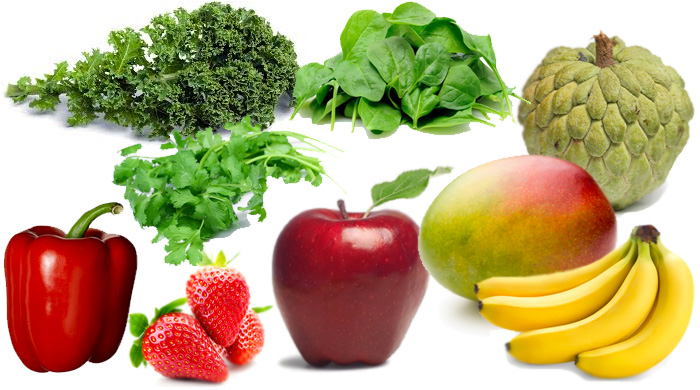Difference Between Fruit And Vegetable In A Whole Food Plant Based Diet
Fruit And Vegetable: Super Nutritious Food

Fruits and Vegetables are natural healing foods because they provide us with a natural and synergistic combination of nutrients. Fruits and vegetables are super nutritious foods, but what is the difference between fruit and vegetable.
A plant based diet falls into the two categories, fruits and vegetables, which can be divided into subcategories. Fruits consist of fruits (apple), nuts (almond), and legumes (garbanzo bean), while vegetables consist of leaves (kale), stems (celery), buds (broccoli), and roots (yam).
Fruit & Vegetable Nutrition Differences
When most of us think about fruits we think about fruits like apples or oranges. When we think about vegetables we think about leaf vegetables like lettuce or kale and bud vegetables like broccoli. Let’s start with this comparison. Though both groups contain some of the same nutrients, vegetables generally contain a higher amount of micronutrients than fruits, and fruits generally contain more macronutrients than vegetables.
Difference Between Fruit And Vegetable: Macronutrient Vs Micronutrient
Vegetables And Micronutrients
The difference between fruit and vegetable is a vegetable generally contains a higher concentration of the micronutrients: vitamins, minerals, and phytonutrients that are essential for good health. In general I eat more vegetables to support the healthy functioning of my organs, because of vegetable’s higher concentration of micronutrients.
These micronutrients such as vitamin A, vitamin B-complex, vitamin C, vitamin D, vitamin E, calcium, iron, magnesium support healthy functioning of eyes, the nervous system, bones, teeth, muscles, skin, nails, blood cells, and the immune system.
Root Vegetable Nutrition
Root vegetables supply an added punch to vegetable nutrition. Root vegetables like yams and beets are powerhouses of vitamins and minerals like leaf vegetables, but root vegetables also supply the added punch of carbohydrates, particularly complex-carbohydrates, and supply energy like fruits do.
Fruits And Macronutrients
The difference between fruit and vegetable is a fruit contains more macronutrients which are the energy-giving and structural caloric components of our foods, and include carbohydrates, fats and proteins.
Apples, bananas, oranges (normally what we think of when we think of fruits) are concentrated with the simple carbohydrates or simple sugars, fructose. Fruits in general have a higher concentration of fructose than vegetables.
The “other fruits” are nuts and legumes. Nuts generally have a higher concentration of protein and healthy omega-3 and omega-6 fatty acids than do fruits and vegetables. Legumes generally have a higher concentration of protein and complex-carbohydrates than do nuts, fruits and vegetables.
Difference Between Fruit And Vegetable: Crossover
Carbohydrates are a macronutrient, which supplies energy, and are generally found in a higher concentration in fruits. Fiber is a complex-carbohydrate but is not digested in the body and is not used for energy. Vegetables and fruits are both good sources of fiber which is essential for healthy living.
Vegetables and fruits are both good sources of antioxidant phytochemicals. Phytochemicals are chemical compounds that occur naturally in plants (vegetables) and fruits, which give them their color. These phytochemicals have antioxidant properties and help to protect cells against oxidation, which causes aging.
Fruit & Vegetable Nutrition
If you are looking to to give your body foods that will help it to heal itself and to strengthen the immune system, concentrating leaf, stem, and bud vegetables into your diet appear to be a good idea.
By consuming more vegetables than other foods you will increase your intake of the nutrients that support good health, while reducing high caloric foods. This approach is helpful to people who are not highly active and who want to lose weight, because you are giving your body the chance to burn stored energy, while also providing your organs with nutrients that will operate more efficiently.
There are always exceptions to the rules. Many fruitarians practice a 80-10-10 diet and also lose weight and improve their health, though many are very active. The 80-10-10 diet consists of 80% carbohydrates, 10% fat, and 10% protein. They eat mostly fruits and a little bit of vegetables. The fruitarians I have seen are very healthy and very slim, or skinny, and I think the skinniness is due to the small amount of protein in their diet.
While adopting a plant based diet, I learned the difference between fruit and vegetable and I am able to balance my diet to get all the micronutrients and macronutrients I need to support my healthy living.
Tags: carbohydrates, energy, fruits, sugar, vegetables







